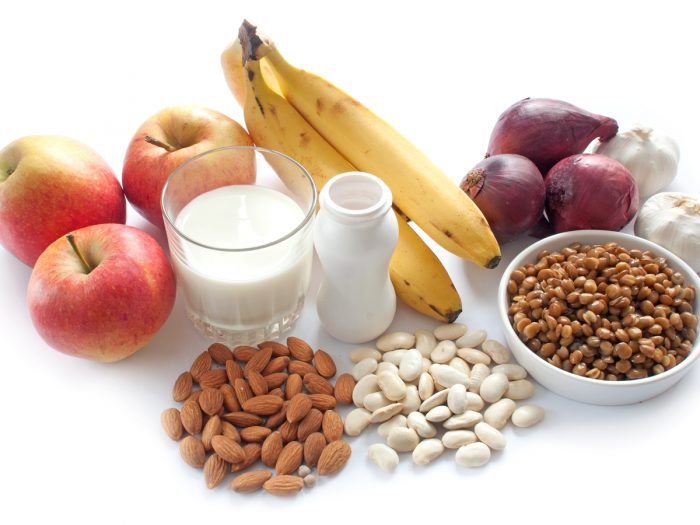Using probiotics for kids is an increasingly popular trend among many parents who want to ensure the health of their children.
Introduction to Probiotics
Probiotics are important for everyone, including both adults and children, as they can improve the health of the gut and help to maintain the bacterial balance in the body. It is also important to consider the use of probiotics when you are pregnant, as a mother’s microflora will have a serious impact on the microbiome of their child after it is delivered. As children, more than 80% of immune activity occurs in the gut, so any probiotics that you provide for your child can help them develop their defenses against foreign pathogens and bacteria. By exposing the immune system to pathogens, and also providing the defenses they need, you can set your child up for gastrointestinal success as they age. [1]

Probiotics rebalance healthy bacteria in the gut. Photo Credit: Shutterstock
Probiotics For Kids
- Children need probiotics because they can affect the development of allergies and set a dietary course for their young adult and adult lives. [2]
- Probiotics are certainly safe for children, although some of the most potent probiotic foods aren’t popular with kids’ palates.
- Yogurt may be easy to slip into their diet, but there are also many probiotic supplements targeted for children.
- Kids who have compromised immune systems or those with chronic diseases shouldn’t be given probiotics, as they can interfere with certain gene activations, hormonal balance, and other prescribed medications. [3]
- Generally speaking, however, probiotics are a great choice for children if you want them to develop good immune and gastrointestinal health.
Benefits of Probiotics for Kids
The top benefits of probiotics for kids include their ability to improve digestion, boost the strength of the immune system and reduce side effects from childhood vaccinations, among others.
Digestive Problems
They help calm digestive issues and reduce symptoms of stomach aches, constipation, and diarrhea.
IBS
Probiotics reduce symptoms of irritable bowel syndrome (IBS) and soothe inflammation. [4]
Vaginal Health
They promote vaginal health in young girls by preventing yeast overgrowth.
Immune system
Probiotics increase the strength of the immune system.
Eczema
They can be used to minimize the appearance of eczema on the skin, as this can often be due to a poor diet or bacterial balance.
Dermatitis
Probiotics treat the symptoms of atopic dermatitis if your child has a number of food allergies. [5]
Metabolic Syndrome
They improve metabolic speed to prevent obesity or early signs of metabolic syndrome.
Childhood Vaccinations
Probiotics bolster the immune system to avoid any side effects of childhood vaccinations.
Cognitive Function
They stimulate cognition in a child’s critical early years.
Autism
Probiotics help lessen the risk of autism or spectrum disorders. [6]
Colic
For infants, probiotics can soothe discomfort and ease symptoms of colic.
Food Allergies
They help prevent the development of food allergies or a sensitive stomach as children grow up.
Side Effects
There are a number of side effects when consuming probiotic foods, but these usually only occur when the foods are eaten in excess. A healthy diet should have a balanced amount of probiotics – enough to protect the gut, but not overload it with bacteria that will generate the following side effects. [7]
- Stomach bloating
- Swelling of the face, lips, tongue, and throat
- Allergic reactions (including redness, swelling hives, and difficulty in breathing)
- Gastrointestinal distress (nausea, vomiting, cramping, and diarrhea)
Note: To be safe, you should limit heavily probiotic foods to one meal per day, and be sure to watch your children’s reaction to the foods you give them. If their bowel movement normalizes, if they seem more energized or if their desire for constant snacking seems to reduce, you’re on the right track with their probiotics. That being said, it is always best to speak with a doctor before changing your child’s diet to one that is heavy in probiotics.
